| I desperately wanted my third novel, Matilda Windsor Is Coming Home, to be published this year. For one thing, I like the ring of 2020. For another, I’ve been working on it long enough. Begun with three character sketches in autumn 2014, I completed an 80,000 word first draft in January 2015 and, after various ups and downs, including ballooning to 130,000 words, had it ready for reader feedback three years later. |
Welcome
I started this blog in 2013 to share my reflections on reading, writing and psychology, along with my journey to become a published novelist. I soon graduated to about twenty book reviews a month and a weekly 99-word story. Ten years later, I've transferred my writing / publication updates to my new website but will continue here with occasional reviews and flash fiction pieces, and maybe the odd personal post.
|
When Inspired Quill, who published my first three books couldn’t find space in this year’s schedule, I considered self-publishing, and, for a whole week in January was convinced I was going with a pricey but prestigious assisted self-publishing outfit until it became clear that, even setting aside printing costs, I’d lose money on Amazon sales unless I ratcheted up the price. Now, of course, with events cancelled for the next several weeks, I feel remarkably lucky to have finally signed with Inspired Quill for May 2021.
8 Comments
Appraising and reflecting on the old year’s authorial achievements and my aspirations for 20206/1/2020
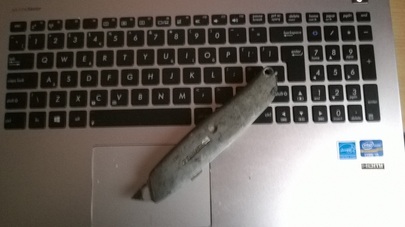 By the end of this week, I’m hoping to have completed the first round of my publisher’s edits of my forthcoming novel, Sugar and Snails. I’ve blogged before about the joys of collaborative editing but, I must confess, I haven’t always relished having someone else take a scalpel to my treasured words. However much we understand intellectually that the external perspective is vital, it can be difficult emotionally to accept that our darlings must be killed. This time, however, I’m delighted to see paragraphs scored through, sometimes entire scenes. I’m not saying that I agree 100% with my editor’s suggestions, but I do welcome the prospect of cuts. Given that I’d pared the prose down as much as I could before submitting, and a bit more on signing the contract, I am a little surprised that I’m so sanguine about additional extractions. I can’t believe it’s because, after so many years of writing, I’ve achieved a Zen-like state of acceptance; so what else could be going on? My Dear Readers, I know that a novel written in the form of letters is known as an epistolary novel, but is there a word for a novel that starts with an intriguing letter and then goes on to portray the lives of the letter writer and its intended recipient? I’m asking because two novels I read recently followed that format and I’d like to tell you a little about them. I’d love to hear your views and, if you do wish to reply, you can do so in the comments box below. With all best wishes, Annecdotist. 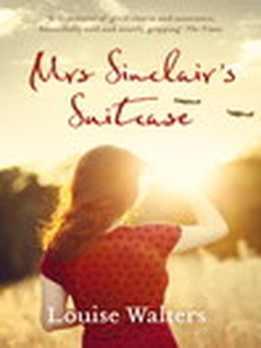 Surely this is every book lover’s dream? Roberta works in one of those idyllic old-fashioned bookshops owned, not by some faceless conglomerate, but by a true aficionado of the printed word, the laid-back Philip Old. She rearranges the shelves, serves the occasional customer, dust books, and collects the letters, postcards and till receipts she finds between the pages. These serve as epigraphs for the chapters comprising the contemporary strand of the novel. The first is a letter from Jan Pietrykowski, written in 1941, ending his relationship with Dorothea because he disapproves of something she’s done. Roberta has found this letter in an old suitcase belonging to her hundred-and-ten-year-old grandmother, Dorothea, now residing in a nursing home. She’s never heard of Mrs D Sinclair, whose name is inscribed in the suitcase, but Jan Pietrykowski is her paternal grandfather, dead before Roberta’s father was born. Otherwise the letter makes little sense to the reader, or to Roberta, especially as it contradicts what she’s been told about the family narrative. It takes the rest of the novel for her to come anywhere near to approaching the truth.  Blackberry and apple crumble Blackberry and apple crumble While I take great pleasure in my ability to harvest fruit and veg from my garden, I don’t get particularly excited about cooking it. As I couldn’t let it go to waste, I’ve been rustling up some strange concoctions of beetroot, courgettes and beans lately and rushing to put them on the table before it gets too cool to dine in the garden. Cordon Bleu it’s not! I’m hoping my response to Charli Mills’ latest flash fiction prompt won’t also come out as a dog’s dinner. Looking for inspiration for my 99-word food story, I turn to the novels on my physical and virtual bookshelves. Consistent with my miserablist inclinations, there’s a dominant theme of the problems that food or its lack can bring. In Shelley Harris’ novel, Jubilee, a boy’s divided loyalties to his white friends and Asian family is played out in his response to the food his mother plans to cook for a street party in 1970s Britain. (You can click on the link to find the quote.) One of the enduring images in Alison Moore’s debut, The Lighthouse, is the way in which, on a catered walking holiday along the Rhine, the main character consistently fails to get the food he has paid for. Although Lewis, the central character in her second novel, He Wants, is forced to endure fewer physical privations, his food is unsatisfying because it’s not what he actually wants.  In terms of wacky ideas for a story, what’s your verdict on these? Henry Merriweather falls in love with a playing card; Dan and Evelyn cannot shuffle off this mortal coil until they finish the card game they began on their wedding night in 1928. Lady Farrimond plays cards with a stranger and forfeits her most treasured possession. Two brothers cannot agree even on the rules of a simple game like noughts and crosses; rioting has become a national sport with fixtures, policing, and the whole media circus; even Scrabble has become a dangerous game when the tiles spell out MURDER. 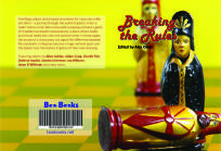 Breaking the Rules, a short story anthology edited by Alex Davis, is replete with such unlikely scenarios convincingly portrayed on the page. Published by Derby-based (very) small press Boo Books, this collection of thirteen stories buzzes with quirky creativity and eloquent prose. Unlike the editor, I’m not a particular fan of games, but I found myself entertained by the stories and in awe of the depth and breadth of creativity on show.  A writer is someone who edits, not just culling the dross but being brave enough to throw out the good stuff if it isn't earning its keep. All that waste would horrify Selina, the central character in my newly published short story, Fat Footprints, whose close relationships are in jeopardy due to her taking the mantra of reduce, reuse, recycle to the extreme. So it's on her behalf I'm asking if there's ever a way of reusing those unwanted words. Like taking our fashion mistakes to the charity shop and wilted vegetables to the compost, is there ever life after death for our redundant sentences?  Like sex, you can do it on your own, you can do it with one partner dominating the other, but when two people approach the business of editing with an open minded desire to do nothing but improve on the writing, it can be a truly creative process. Having yet to publish a novel, I don't have a vast experience of being edited and, I must confess, I feel slightly panicked when an editor wants to suggest some amendments to my short story. I don't know why – apart from the fact that it's not so common in the world of short stories – because my experience of this has been largely positive. Someone who appreciates my work enough to publish it has now read it so closely they've thought how to make it better: what's not to like? Well, bad experiences do linger in the mind: once I chose to turn down the chance of publication because an editor (I've conveniently forgotten the magazine) edited and amended my short story beyond recognition and wouldn't brook any discussion. I suppose everything hangs on one's understanding of the term editing: Editing is the process of selecting and preparing written, visual, audible, and film media used to convey information through the That editor presumably understood her role as correction and was probably quite upset that I wasn't grateful for her hard graft knocking my story into shape. But some time later another editor was happy enough to publish my original version, so it can't be all that bad! I don't want to make too big a deal of this – it was only one short story – but it still feels like a missed opportunity: that if we'd been able to really work together on it, we might have been able to come up with an improvement on the original.
It seems I'm not alone in the experience of having edits imposed on me. And it doesn't just happen in the world of fiction. Back in the days when I was publishing academic papers, I once had the laborious task of undoing the work of a copy editor who didn't understand what my text was supposed to be about, and I had to go through all those proofreading symbols to reinsert the meaning back into the piece. Fortunately, I've been able to work with other editors who have applied their creative and human relations skills to make this a truly collaborative process. It might be sorting out a clunky sentence. It might be nothing more complex than word order and punctuation. Once it was rewriting the story's ending. I find if I'm free to say no, I'm more likely to say yes to an editor's suggestions, but it's often when I say maybe that it gets interesting. That's when we find the in-between space, the ideas that neither of us would have thought of on our own. After the isolation of writing, it's lovely to find that connection through getting the work published, but it's especially lovely to have a positive editing experience first. So here's to Annie Rutherford my latest valiant editor, and my short story A Man Is Swinging (it's in The Back of Beyond). |
entertaining fiction about identity, mental health and social justice
Annecdotal is where real life brushes up against the fictional.
Annecdotist is the blogging persona of Anne Goodwin:
reader, writer, slug-slayer, tramper of moors, recovering psychologist, struggling soprano, author of three fiction books. LATEST POSTS HERE
I don't post to a schedule, but average around ten reviews a month (see here for an alphabetical list), some linked to a weekly flash fiction, plus posts on my WIPs and published books. Your comments are welcome any time any where. Get new posts direct to your inbox ...
or click here …
Popular posts
Categories/Tags
All
Archives
March 2024
BLOGGING COMMUNITIES
|
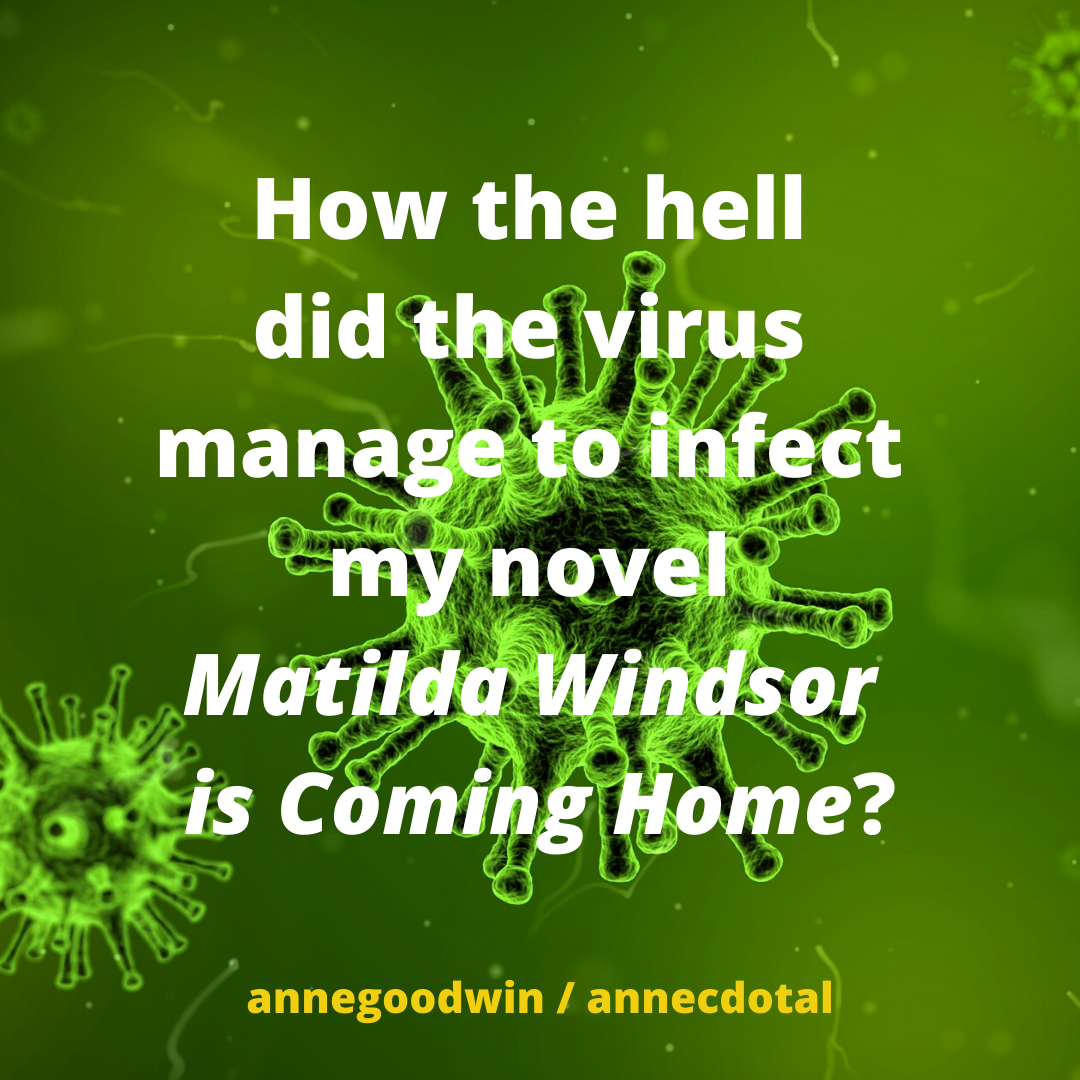
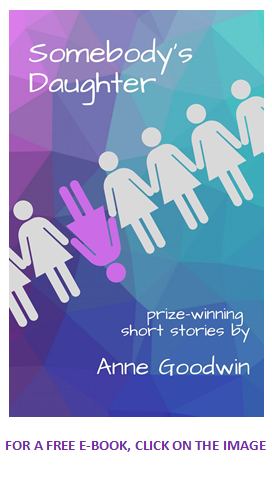

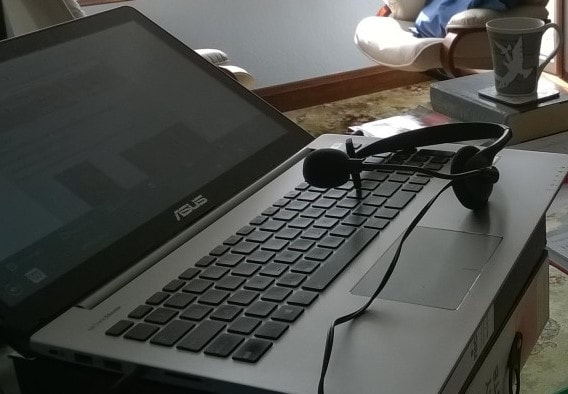

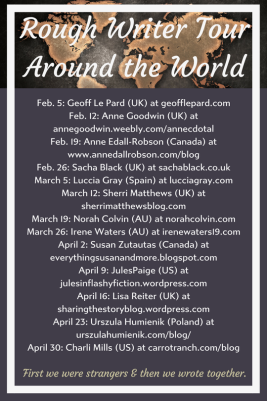
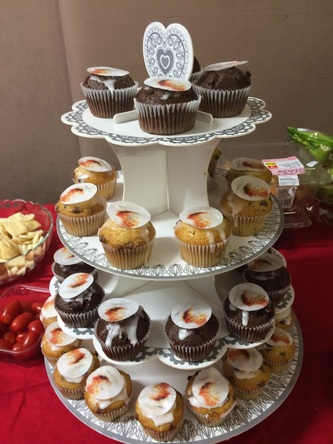





















 RSS Feed
RSS Feed





















